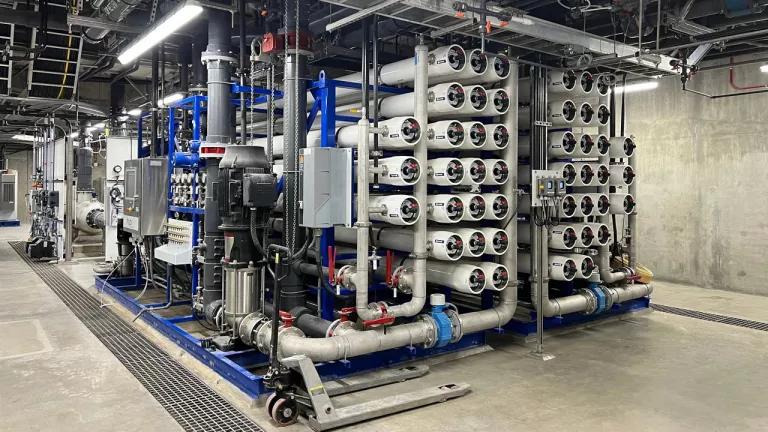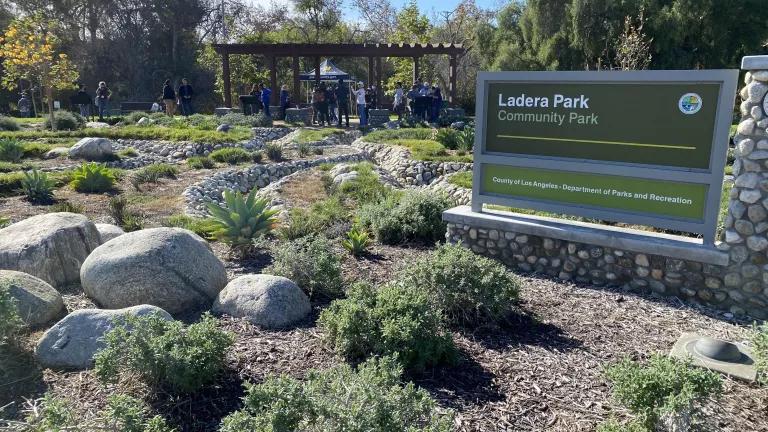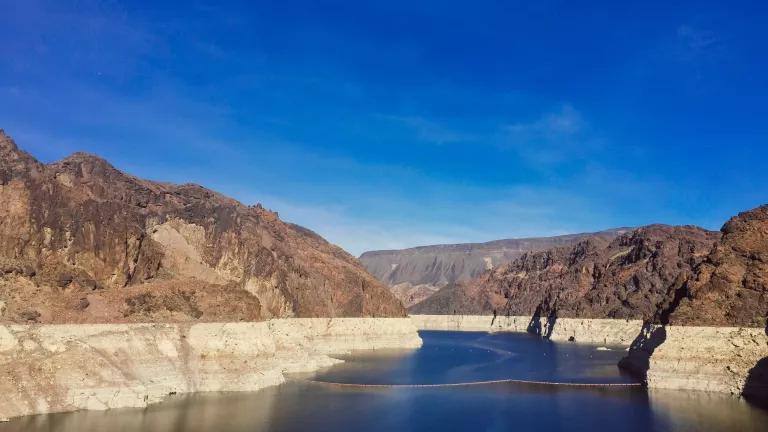Collaborative Junk Science Is the Core of the Delta VA
If you wouldn’t trust oil tobacco companies to tell you what’s safe for your health, why would you trust these water agencies to say what’s good for fish and wildlife in the Bay-Delta watershed?

After years of exclusionary backroom negotiations over Bay-Delta voluntary agreements, earlier this week the state made a ham-fisted attempt to greenwash these proposed voluntary agreements, sending this email inviting a handful of people who had participated in VA conversations years ago to participate in “two workshops to finalize the governance and decision-making process for the implementation of the VA program.” (DWR subsequently sent a revised email to NRDC and several other organizations, while still excluding numerous Tribes, conservation groups, and other stakeholders.)
Inviting previously excluded groups to join a meeting to “finalize” the voluntary agreements is not a legitimate collaborative process. Indeed, the conservation groups that participated in VA negotiations between 2012 and 2019 repeatedly raised major concerns – concerns that were repeatedly ignored and never addressed, because these conservation groups were never equal partners in this process. NRDC will not be participating in this sham collaboration to “finalize” a plan that will likely wipe out salmon and other endangered species in the Bay-Delta. Restore the Delta likewise declined this invitation, eloquently explaining here that this was not a real collaboration.
But the problems run deeper, because the governance and decision-making scheme proposed in the voluntary agreement process is inherently biased. It is designed to empower the participating water districts to have even more say over decision-making and what constitutes “science.”
Giving the contractors more say over science is problematic because the participating water districts – and the California Department of Water Resources -- have a vested interest in trying to show that fish don’t need water so that they can divert ever more water from this imperiled watershed. DWR and these water districts have spent decades using junk science and “combat science” to try to manufacture scientific doubt about the importance of flow, using that "science" in order to fight environmental protections for salmon and other endangered species. For instance:
- In the mid-2000s, the Department of Water Resources, Westlands Water District, Metropolitan Water District of Southern California, State Water Contractors, and other water districts claimed that Delta Smelt were not at risk of extinction from the operations of the Central Valley Project and State Water Project (they were, as numerous scientific studies demonstrated and the district court's order in 2007 invalidating the Bush Administration's biological opinion concluded).
- In 2008 and 2009, the California Department of Water Resources and many of these same water districts sued the Obama Administration to try to overturn scientifically justified protections for Delta Smelt and endangered salmon (they lost both lawsuits, with the Court of Appeal fully upholding the biological opinions as complying with the Endangered Species Act).
- Many of these water districts have paid scientists to develop papers that claimed that the real problem was something other than water. For instance, water contractors paid for a study that claimed that ammonium from water treatment plants was what caused the decline of Delta Smelt and other species in the Delta, but that study was debunked in peer reviewed research, showing basic statistical flaws in the initial paper. Water contractors also funded a study that claimed that the entrainment and killing of Delta Smelt at the pumps did not cause the decline of the population, but that study likewise was debunked by subsequent peer reviewed studies, including one (Rose et al 2013a) which showed the original paper used statistical slight of hand to ignore the effects of entrainment.
- Many of these water districts continue to defend the Trump Administration’s 2019 biological opinions in court, claiming that the Trump Administration’s rollback of environmental protections in order to increase water diversions for these contractors is based on the best available science and won’t harm salmon or Delta Smelt (these biological opinions are a plan for extinction, which we’re watching in real time as Delta Smelt spiral towards extinction and the these biological opinions authorize the lethal water temperatures that killed 75% of endangered winter-run Chinook salmon last year and are likely to kill more than 50% this year). Indeed, the Sacramento River Settlement Contractors argued in Court earlier this year that decades of peer-reviewed scientific studies were wrong, and water temperatures would have to exceed 56 degrees Fahrenheit to kill endangered salmon eggs.
If you wouldn’t trust oil companies or tobacco companies to tell you what’s safe for the planet or your health, why would you trust these water agencies—which make their living selling water from the Bay-Delta and have spent the past two decade undermining environmental protections for salmon and other endangered species — to say what’s good for fish and wildlife in the Bay-Delta watershed? Yet that’s what the voluntary agreements would do: further empower these water districts to decide what constitutes good science and how much water the environment needs, in the spirit of “collaboration.” This is the kind of collaboration that results in the fox guarding the henhouse.
Real collaboration is hard. It requires transparency, trust, agreed upon facts, and common interests. The voluntary agreements are the antithesis of this – they are an exercise undertaken in bad faith by state agencies, conducted in secret through backroom negotiations, using misleading “facts” and junk science, in order to put a huge thumb on the scale in favor of increased water diversions by the contractors of the State and Federal water projects at the expense of salmon, Delta communities, fishing jobs, the environment, and more senior water rights holders in the Bay-Delta watershed.



